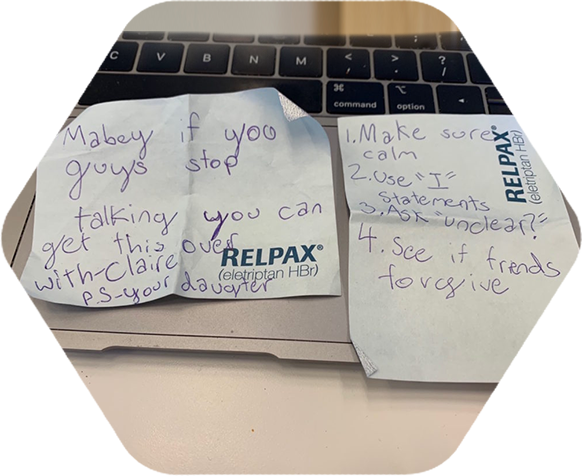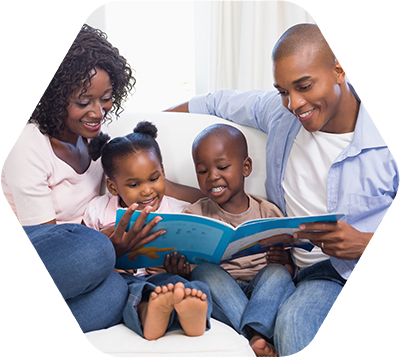Sometimes the best way a family can stay together is for the parents to part ways. The process for how this occurs is a significant decision. Research has shown that children do well in life, even in a 2-home configuration, when their parents are cooperative and respectful with one another.
Consensual Dispute Resolution (CDR) is a non-litigation approach that keeps parents and families out of court and in control of their own divorce process. The 2 main CDR paths are mediation, where 1 lawyer is shared, and collaborative where each has their own, and other team members are included depending on needs.
Divorce is largely an emotional experience. For this reason, mental health professionals (MHP’s) such as myself are often used in the CDR processes. As a family and couple therapists, I am uniquely prepared to assist you. I am trained and experienced in helping you as well as the attorneys to support, speak directly, and help hold the line so the divorce process can move forward in a productive, economical, and timely manner. Usually, MHP’s such as myself are asked to develop a custody plan, also commonly referred to as a “parenting plan.” MHP’s are also asked to coach you and your partner through short, mid, and long-term co-parenting communication issues. An MHP will ultimately become a resource to you and your families going through the challenging and often legal and emotionally confusing process of divorce.


ANXIETY AND FEARS
Anxiety and fear is about not knowing. When a couple has made the decision to divorce, there is a lot that is not known. There are concerns about our children and how they will fare, financial insecurity, how our life will look going forward, and whether we will be alone for the rest of our lives.
This moment can feel unbearable.
At this juncture, anxiety and fear is often fraught with feeling emotionally bombarded around prior regrets and worst-case scenario thoughts and images of the future. My mediation process aims to manage this very stressful moment of not knowing by compartmentalizing your thoughts, feelings, and items associated with your divorce, and then developing whatever plans the moment calls for to gently and respectfully move you and your family forward.

COUPLES IN DISTRESS
Separation or divorce is not an easy decision. It is a stressful time and an upheaval to all family members. It can be upsetting for the person initiating the change and in a different way to the person who is not ready or willing to “give up” the relationship. If the decision to dissolve the partnership is made, there is still much to talk about where your children are concerned. You and your partner may no longer remain married but you will always be parents. My therapy will provide you with a calm environment to speak together about how to move your family forward as it takes on a different shape with new emerging needs.

PARENTING / CO-PARENTING
As an experienced and trained couples and family therapist, I will help you and your partner figure out how you will co-parent through your divorce and beyond. And how you can move your family, albeit in a changed configuration, forward. I will act as a neutral co-parent communication expert by supporting both of you while providing concrete parenting strategies as needed.
Researchers, mental health professionals, and family courts consistently emphasize parental conflict as one of the most damaging issues within divorce. Children suffer significantly when they are exposed to their parents’ heated debates, badmouthing, insults, and high-conflict situations.
By engaging with me on co-parenting communication you will avoid unnecessarily exposing your children to parental conflict. As a result, these common experiences will be either minimized or avoided:
- place children in loyalty conflicts (feeling as if they must choose one parent over the other)
- continue or influence children’s feelings of fear and insecurity
- impact children’s self-esteem and sense of identity
- lengthen short-term reactions to divorce and keep children from successfully adjusting
- contribute to the development of negative long-term relationships
- impede a child’s ability to lead a happy and productive life

DEPRESSION
The decision to divorce regardless of who ultimately initiated it is depressing for those involved. Depression is often about feeling hopeless and out of control. Over many years a relationship was born and grew, together perhaps a house and other forms of wealth were acquired, and children were conceived.
The end of a marriage is a particular kind of depression because it involves a form of grief and loss. This often includes in addition to a loss of a marriage, a loss of extended family and friends, and in part a loss of self-definition. “Who will I be as a divorced person?” “Will my children be OK?” “Will I be alone for the rest of my life or will I find love again?” My mediation process focuses on acknowledging depression and helping people to redefine their relationship to one another, redefine their family configuration, and redefine their sense of self by accepting a major change in life.
It has been one of my greatest professional experiences to hold hope at the onset of divorce and to gradually assist couples in feeling stronger as they come to hold hope themselves.
